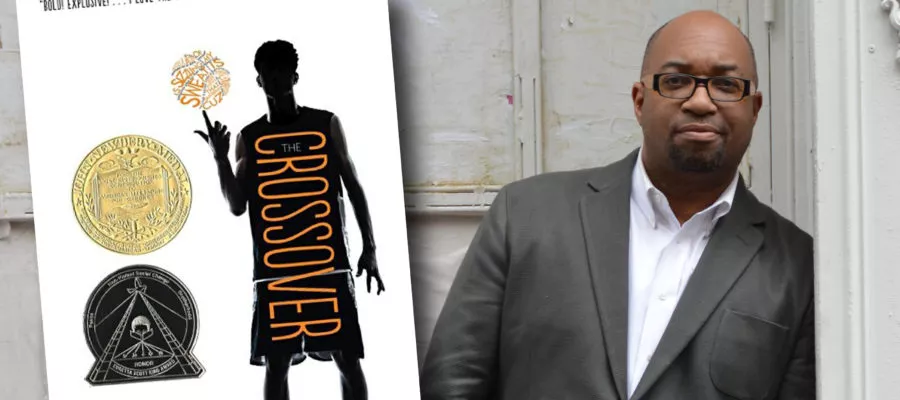Poet and children’s author Kwame Alexander won the 2015 Newbery Award for The Crossover, a middle-grade novel about twin “tween” boys on the cusp of thirteen who play basketball and are brimming with preadolescent angst. The book is a mashup of poetry and prose told with the high-energy beat of a hip-hop song or an edge-of-your-seat basketball game. NEA Today talked to Alexander, a passionate literacy advocate, to find out more about what it means to write books with diverse characters.
What motivates your writing?
KA: To be authentic and tell my story. I was a black boy who laughed, had crushes, cried, played, felt, had friendships that were troubling, ate dinner with my family each evening. I want my writing to be a mirror for kids who look like me and a window for kids to look at a different life and recognize it as very much like their own. I want every kid to know that they are worthy, valuable, and important.
Why is the “WeNeedDiverseBooks movement in children’s literature important?
KA: I had a librarian ask me if the boys in The Crossover were black. She said she was giving a book talk and the students were going to ask. I told her I was sure they wouldn’t, but if they did to call me back. They didn’t. They didn’t care. And that’s why we need more diverse books. When kids regularly read about characters from different backgrounds or races or countries, the shared humanity of the characters becomes more important than anything else. We need diverse books to be mirrors and windows so all young people can not only see themselves in literature, but see outside themselves, which makes them more aware of our connections as human beings. We’re not that far from overt racism and Jim Crow, and I think some people’s segregation of the literature is so backwards. It’s so important to get people to talk about these challenges. We live in a country that’s diverse. Do you want literature, music, arts and culture to reflect the community or do you want it to be dishonest? What kind of world do we want for our kids? If we want a world where they appreciate each other for what’s on the inside, let the books on your bookshelf reflect that. Children can experience the broader world through the pages of a book. Some adults today can’t appreciate the humanity of a black boy because they never read about him in literature.
You’ve said you were a reluctant reader when you were in school. How can we encourage today’s reluctant readers to dive into books?
KA: It’s so important because it helps them become more human; it helps them have an appreciation for language and literature and to imagine a better and brighter world. If we can help kids choose books that will allow them to find their voice, they’ll become readers. When you are able to find your voice or see your voice on a page, it is powerfully affirming. It builds confidence and opens up a world of possible for you, and we all want more of that. I tell kids all the time, you might not be able to travel right now but it’s so important to your worldview and you can do that through books. You can go anywhere. It all starts on the page.
Poetry can be an even tougher sell for kids. What’s the secret there?
KA: Show them that poetry is powerful. Poetry is concise. Poetry is truth. It’s not intimidating, and it can be your entrée into the world of literature. Like literature, it empowers them and lifts them up. You worked as a teacher. Can you tell us a little about that?
KA: I taught at a boarding school in Georgia and lasted for a summer session. I also taught at a high school in Silver Spring, Maryland, for special needs students and lasted one semester. I found it to be the most challenging experience of my life. It was the hardest work I’ve ever done. Both of my parents were educators but it wasn’t until I tried it that I realized, wow, the huge amount of work that goes into being a teacher. I respect that work on a whole other level and respect and envy those with the gift to do it.
How are educators and children’s writers similar to each other?
KA: We all have the responsibility to help them imagine a better world. We are the gatekeepers and we have the power to make or break their reading lives, and ultimately to make or break them as human beings. If we segregate the literature and segregate the kids by putting labels on them, like these are the good ones and these are the “other” ones, we’re going to break kids. We need to show them their humanity and their worth in the world.
What’s next for you in your writing?
KA: I’m working on a prequel to The Crossover about the father when he was 12, a new “Bro and Dude” picture book, and I’m developing a TV show for middle school students centered around my love of literature, words and music. And I’m in schools all over the country four days week speaking to students about poetry and literature.


